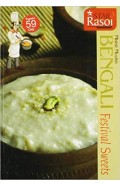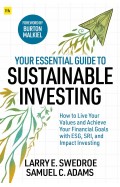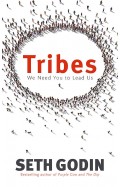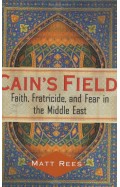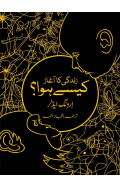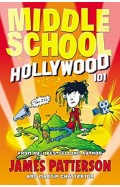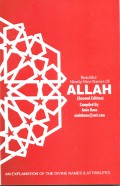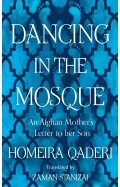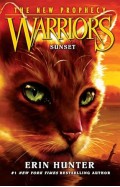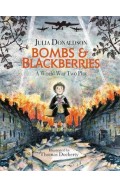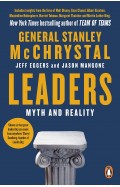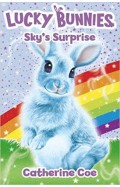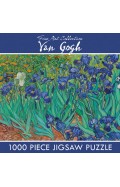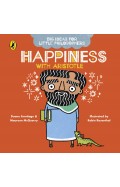The Last Fire Season - A Personal and Pyronatural History
By: Manjula Martin
-
Rs 5,125.50
- Rs 5,695.00
- 10%
You save Rs 569.50.
Due to constant currency fluctuation, prices are subject to change with or without notice.
NATIONAL BESTSELLER • A MOST-ANTICIPATED BOOK: The New York Times, The Los Angeles Times, The San Francisco Chronicle, The Saturday Evening Post, Poets & Writers, The Millions, Alta, Heat Map News
Told in luminous, perceptive prose, The Last Fire Season is a deeply incisive inquiry into what it really means—now—to live in relationship to the elements of the natural world. When Manjula Martin moved from the city to the woods of Northern California, she wanted to be closer to the wilderness that she had loved as a child. She was also seeking refuge from a health crisis that left her with chronic pain, and found a sense of healing through tending her garden beneath the redwoods of Sonoma County. But the landscape that Martin treasured was an ecosystem already in crisis. Wildfires fueled by climate change were growing bigger and more frequent: each autumn, her garden filled with smoke and ash, and the local firehouse siren wailed deep into the night.
In 2020, when a dry lightning storm ignited hundreds of simultaneous wildfires across the West and kicked off the worst fire season on record, Martin, along with thousands of other Californians, evacuated her home in the midst of a pandemic. Both a love letter to the forests of the West and an interrogation of the colonialist practices that led to their current dilemma, The Last Fire Season, follows her from the oaky hills of Sonoma County to the redwood forests of coastal Santa Cruz, to the pines and peaks of the Sierra Nevada, as she seeks shelter, bears witness to the devastation, and tries to better understand fire’s role in the ecology of the West. As Martin seeks a way to navigate the daily experience of living in a damaged body on a damaged planet, she comes to question her own assumptions about nature and the complicated connections between people and the land on which we live.
NATIONAL BESTSELLER • A MOST-ANTICIPATED BOOK: The New York Times, The Los Angeles Times, The San Francisco Chronicle, The Saturday Evening Post, Poets & Writers, The Millions, Alta, Heat Map News
Told in luminous, perceptive prose, The Last Fire Season is a deeply incisive inquiry into what it really means—now—to live in relationship to the elements of the natural world. When Manjula Martin moved from the city to the woods of Northern California, she wanted to be closer to the wilderness that she had loved as a child. She was also seeking refuge from a health crisis that left her with chronic pain, and found a sense of healing through tending her garden beneath the redwoods of Sonoma County. But the landscape that Martin treasured was an ecosystem already in crisis. Wildfires fueled by climate change were growing bigger and more frequent: each autumn, her garden filled with smoke and ash, and the local firehouse siren wailed deep into the night.
In 2020, when a dry lightning storm ignited hundreds of simultaneous wildfires across the West and kicked off the worst fire season on record, Martin, along with thousands of other Californians, evacuated her home in the midst of a pandemic. Both a love letter to the forests of the West and an interrogation of the colonialist practices that led to their current dilemma, The Last Fire Season, follows her from the oaky hills of Sonoma County to the redwood forests of coastal Santa Cruz, to the pines and peaks of the Sierra Nevada, as she seeks shelter, bears witness to the devastation, and tries to better understand fire’s role in the ecology of the West. As Martin seeks a way to navigate the daily experience of living in a damaged body on a damaged planet, she comes to question her own assumptions about nature and the complicated connections between people and the land on which we live.
The Last Fire Season - A Personal and Pyronatural History
By: Manjula Martin
Rs 5,125.50 Rs 5,695.00 Ex Tax :Rs 5,125.50
Zubin Mehta: A Musical Journey (An Authorized Biography)
By: VOID - Bakhtiar K. Dadabhoy
Rs 892.50 Rs 1,050.00 Ex Tax :Rs 892.50
The Origins of Political Order From Prehuman Times to the French RevolutioN
By: Francis Fukuyama
Rs 4,045.50 Rs 4,495.00 Ex Tax :Rs 4,045.50
Manning Up: How the Rise of Women Has Turned Men into Boys
By: Kay Hymowitz
Rs 845.75 Rs 995.00 Ex Tax :Rs 845.75
The Obama Syndrome: Surrender At Home War Abroad
By: Tariq Ali
Rs 1,100.75 Rs 1,295.00 Ex Tax :Rs 1,100.75
The Quest For Meaning: Developing A Philosophy Of Pluralism
By: Tariq Ramadan
Rs 1,185.75 Rs 1,395.00 Ex Tax :Rs 1,185.75
No similar books from this author available at the moment.
Your Essential Guide to Sustainable Investing: How to live your values and achieve your financial goals with ESG, SRI, and Impact Investing
By: Larry E. Swedroe
Rs 5,945.75 Rs 6,995.00 Ex Tax :Rs 5,945.75
Why the French Don't Like Headscarves: Islam, the State, and Public Space
By: John Richard Bowen
Rs 841.50 Rs 990.00 Ex Tax :Rs 841.50
Price Wars: How Chaotic Markets Are Creating a Chaotic World
By: Rupert Russell
Rs 2,647.50 Rs 5,295.00 Ex Tax :Rs 2,647.50
Love Is the Killer App: How to Win Business and Influence Friends
By: Tim Sanders
Rs 845.75 Rs 995.00 Ex Tax :Rs 845.75
Nightcrawling - Longlisted for the Booker Prize 2022 - the Youngest Ever Booker Nominee
By: Leila Mottley
Rs 2,065.50 Rs 2,295.00 Ex Tax :Rs 2,065.50
100 Things Millionaires Do: Little lessons in creating wealth
By: Nigel Cumberland
Rs 3,145.50 Rs 3,495.00 Ex Tax :Rs 3,145.50
The Unabridged Journals of Sylvia Plath
By: Sylvia Plath
Rs 4,225.50 Rs 4,695.00 Ex Tax :Rs 4,225.50
Cain's Field - Faith, Fratricide, and Fear in the Middle East
By: Matt Rees
Rs 1,782.00 Rs 1,980.00 Ex Tax :Rs 1,782.00
Ceramic Artists on Creative Processes
By: Miguel Angel Perez Arteaga
Rs 10,165.50 Rs 11,295.00 Ex Tax :Rs 10,165.50
Sunset (Warriors: The New Prophecy): The second generation of the Warrior Cats
By: Erin Hunter
Rs 1,525.50 Rs 1,695.00 Ex Tax :Rs 1,525.50
Bombs And Blackberries: A World War Two Play
By: Julia Donaldson
Rs 1,185.75 Rs 1,395.00 Ex Tax :Rs 1,185.75
Hidden in Plain Sight William Warwick Novels Book 2
By: Jeffrey Archer
Rs 2,245.50 Rs 2,495.00 Ex Tax :Rs 2,245.50
Seducing Strangers: How To Get People To Buy What You're Selling
By: Joshua Weltman
Rs 3,310.75 Rs 3,895.00 Ex Tax :Rs 3,310.75
The Faithless: A dark thriller of intrigue and murder
By: Martina Cole
Rs 1,190.00 Rs 1,400.00 Ex Tax :Rs 1,190.00
Fine Art collection VAN GOGH IRISES 1000 PIECE JIGSAW PUZZLE
By: The Gifted Stationery
Rs 2,695.50 Rs 2,995.00 Ex Tax :Rs 2,695.50
The Office Answer Wheel - Give It a Spin!
By: Andrew Farago
Rs 2,695.50 Rs 2,995.00 Ex Tax :Rs 2,695.50
Big Ideas for Little Philosophers: Happiness with Aristotle
By: Maureen McQuerry
Rs 1,795.50 Rs 1,995.00 Ex Tax :Rs 1,795.50
Zubin Mehta: A Musical Journey (An Authorized Biography)
By: VOID - Bakhtiar K. Dadabhoy
Rs 892.50 Rs 1,050.00 Ex Tax :Rs 892.50
The Last Fire Season - A Personal and Pyronatural History
By: Manjula Martin
Rs 5,125.50 Rs 5,695.00 Ex Tax :Rs 5,125.50














-120x187.jpg?q6)





-120x187.jpg?q6)







